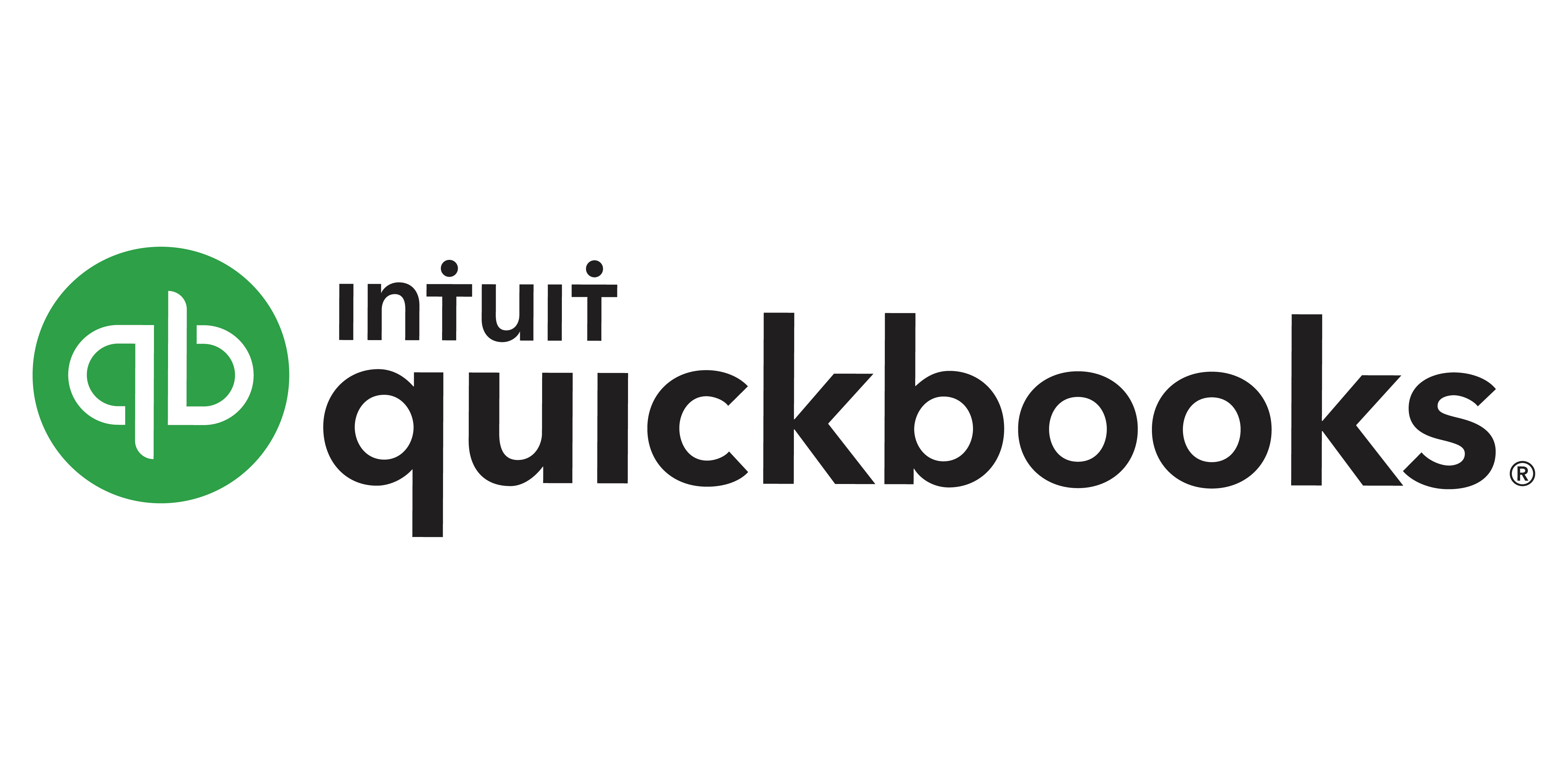What Is Account-Based Marketing Software?
Marketing based on accounts, sometimes known as account-based marketing (ABM) software, is a technology that helps firms target particular accounts or businesses with their marketing campaigns. It enables businesses to concentrate their efforts and marketing tactics on a small number of valuable accounts rather than a large audience. ABM software identifies and ranks the most valuable accounts for a company using a variety of data points, including firmographics, intent data, and account actions.
This enables businesses to better understand the unique requirements, problems, and preferences of their target markets and adjust their campaigns and content appropriately. The capacity to produce tailored and targeted material for every identified account is one of the main characteristics of ABM software, which increases the relevance and significance of marketing initiatives.
In addition to increased engagement and conversion rates, this results in a more simplified and effective marketing procedure. Additionally, ABM software makes it easier for the marketing and sales teams to work closely together. These teams can target and interact with key accounts in a coordinated and cohesive manner by cooperating, which will lead to more focused and successful lead generation and customer acquisition.
ABM software provides comprehensive analytics and reporting features in addition to account identification and customisation. This enables companies to monitor and assess the effectiveness of their ABM initiatives and make informed choices for upcoming campaigns. All things considered, account-based marketing software is a strong instrument that aids companies in locating, focusing on, and interacting with valuable accounts in a more effective and individualized way.
It helps businesses to focus their marketing efforts on the unique requirements and preferences of their target customers, which enhances return on investment and propels business expansion.
What Are the Recent Trends in Account Based Marketing Software?
Account-Based Marketing (ABM) has gained popularity among business-to-business (B2B) firms in recent years, which has led to a rise in the need for ABM software. ABM software trends change along with marketing strategies and technology. It's critical to keep up with the most recent developments in Account-Based Marketing software, regardless of whether you are new to ABM or seeking to upgrade your existing ABM solutions.
Here are some important trends to think about:
1. Integration with data and analytics platforms: The incorporation of data and analytics platforms into ABM software is among its most important developments. Businesses may now more efficiently identify and target significant accounts thanks to the sophisticated data analysis and targeting features that ABM software offers. Additionally, this connectivity makes it possible to send prospective clients more relevant and tailored messages, which raises conversion rates.
2. Increased focus on automation: Another important development in ABM software is automation. Given the complexity of maintaining numerous accounts and the growing demand for customisation, ABM software now has strong automation features. This involves automating processes like email campaigns, content tailoring, and lead scoring. Businesses may increase the efficacy and efficiency of their ABM strategies while saving time and money by implementing automation.
3. Improved AI and ML capabilities: To enhance its targeting and personalization capabilities, ABM software is now integrating AI and ML to improve its capabilities. These technologies enable ABM software to examine enormous volumes of data and spot patterns and trends, assisting companies in making more accurate and well-informed decisions. Additionally, this makes it possible for ABM software to continuously modify and enhance campaigns, guaranteeing organizations the highest return on investment.
4. Omnichannel strategy: Email and direct mail campaigns have always been the main emphasis of ABM. However, an omnichannel approach to ABM has emerged with the growth of digital media. Multi-channel targeting and tracking, including social media, display, and video ads, is now possible with ABM software. By using this strategy, companies may contact their target accounts across a variety of digital touchpoints, boosting engagement and conversion rates.
5. Scalable personalization: One of the main features of ABM is personalization, which can now be accomplished at scale thanks to recent developments in ABM software. Advanced features in ABM software enable companies to automatically customize advertising, messaging, and content for every target account. This saves time and money for the company in addition to giving potential clients a more tailored and pertinent experience.
Benefits of Using Account-Based Marketing Software
Instead of concentrating on finding and interacting with individual leads, account marketing (ABM) is a focused marketing approach. This enables corporations to target particular businesses with their marketing campaigns, increasing conversion rates and improving return on investment. The need for software solutions that can help with the implementation of ABM methods has increased in recent years.
The advantages of utilizing account-based marketing software and how it may assist companies in achieving their marketing objectives will be discussed in this buyer's guide.
1. Improved Personalization and Targeting: Account marketing software enables companies to divide up their target accounts according to a number of criteria, including behavior, industry, and organization size. This makes it possible for marketers to design more relevant and customized programs, which raises engagement and conversion rates. ABM Software assists companies in reaching their target audience more effectively by customizing messaging and content for individual accounts.
2. Increased Efficiency: Without the appropriate technology, putting an ABM strategy into practice can take a lot of time and effort. By automating processes like data collection, content production, and campaign execution, ABM software simplifies the procedure. This allows marketers to work more efficiently and frees up vital time for other critical duties.
3. Higher income and ROI: The possibility of increased income and ROI is one of the main advantages of utilizing account-based marketing software. Businesses may concentrate their money and efforts on customers with the most potential because ABM tactics are very targeted. Better sales alignment, shorter sales cycles, and eventually more revenue and return on investment are the outcomes of this.
4. Improved Analytics and Reporting: Without the appropriate tools, tracking and evaluating the effectiveness of ABM campaigns can be difficult. Businesses can track the effectiveness of their campaigns and make data-driven choices with the help of ABM Software's comprehensive analytics and reporting features. For improved outcomes, this aids marketers in honing their tactics and campaign optimization.
5. Better Alignment of Sales and Marketing: Account marketing software facilitates communication between the marketing and sales divisions. Sales and marketing teams can collaborate more effectively and exchange insightful information by focusing their efforts on the same target accounts. Better lead nurturing, more efficient lead hand-offs, and eventually higher conversion rates can result from this partnership.
6. Scalability and Flexibility: Because ABM Software is made to be scalable, companies of various sizes can use it. ABM software can be tailored to your needs, regardless of how many accounts you are targeting or how many important accounts you are aiming for. It can also readily adjust to shifting business requirements and provides flexibility in terms of integrations with other software.
Important Factors to Consider While Purchasing Account Based Marketing Software?
For B2B marketers trying to reach and interact with high-value customers, account-based marketing, or ABM, has emerged as a crucial tool. Because of this, the market for ABM software has expanded rapidly as well, offering a wide range of choices. But selecting the best software for your company might be difficult. Here are some crucial elements to take into account when buying account-based marketing software to assist you in making an informed choice:
1. Targeting capabilities: Finding and interacting with high-value accounts is the main goal of ABM. In order to pinpoint your ideal accounts and develop tailored ads for them, the software you select should have strong targeting features.
2. Integration with CRM and marketing automation platforms: Your CRM and marketing automation platforms should be able to easily integrate with ABM software. This guarantees seamless data transfer and makes it possible to approach your marketing initiatives in a coordinated and cohesive manner.
3. Personalization features: ABM's success depends on personalization. Seek out software that has sophisticated personalization options like customized message, dynamic content, and landing pages.
4. Account insights and data enrichment: To improve your understanding of your target accounts, the best ABM software should offer insights and data enrichment services. To support your account-based strategy, this may include buying signals, intent data, firmographic and technographic data, and more.
5. Multi-channel capabilities: Using a variety of touchpoints to connect with your target accounts is essential to a successful ABM campaign. To increase your reach and impact, pick software that works with several channels, such as email, social media, display ads, and direct mail.
6. Measurement and reporting: Any marketing campaign's effectiveness depends on accurate measurement and reporting. To gauge the success of your ABM initiatives, look for software that has comprehensive analytics and reporting features.
7. Scalability: As your account-based marketing program develops, you might need to target additional accounts and broaden your reach to include additional industries or geographical areas. Consequently, it's critical to select software that can grow with your business.
8. Customer service and training: Having access to trustworthy assistance and training is essential when implementing new software, which can be difficult. To get the most out of your ABM software, look for vendors who provide regular training choices, onboarding assistance, and a dedicated support team.
What Are the Key Features to Look for in Account-Based Marketing Software?
The performance of your marketing campaigns can be significantly impacted by a few essential aspects that you should look for while searching for Account-Based Marketing (ABM) software.
The following are the most important characteristics to consider while assessing ABM software:
1. Target Account Identification: Finding and focusing on high-value accounts is one of the primary goals of ABM software. To find the most pertinent accounts for your company, look for software that makes use of advanced targeting features like intent data, machine learning, and predictive analytics.
2. Personalization: In ABM, tailored communications are crucial. Seek out software that enables you to produce highly customized messaging and content for every target account, such as account-specific offers, email campaigns, and landing pages.
3. Multi-channel Campaigns: ABM software needs to let you start campaigns on many platforms, including social media, email, and display ads. This raises the likelihood of engagement and conversion by enabling you to reach your target accounts through a variety of touchpoints.
4. Account Insights: The top ABM software gives you information about the needs, interests, and behavior of your target accounts. In addition to helping your sales team better understand and interact with their target accounts, this data enables you to develop more individualized and successful campaigns.
5. CRM Integration: Your Customer Relationship Management (CRM) system and ABM software should work together easily. This makes it simple to exchange data and gives your sales team a comprehensive picture of the customer journey, from marketing to sales.
6. Measurement and Reporting: Seek software that offers comprehensive analytics and reporting in order to monitor the effectiveness of your ABM initiatives. This enables you to assess the effectiveness of your campaigns and decide on future tactics based on facts.
7. Scalability: Your ABM software should be scalable as your company expands. Choose software that can manage big data sets and makes it simple to add new target accounts and campaigns.
8. Team Collaboration: Select software that promotes team collaboration and communication because ABM requires tight coordination between the marketing and sales departments. This guarantees that everyone is on the same page and pursuing the same objectives.
9. Account-Based Advertising: Take into consideration technologies that enable you to target particular accounts with customized advertisements across several channels.
10. Customer Support: To assist you in getting the most out of your investment, be sure the ABM software provider provides dependable customer support as well as continual training. You can locate an ABM program that best suits your company's requirements and aids in the accomplishment of your account-based marketing objectives by taking into account these important characteristics. Before deciding, don't forget to consider customer ratings, cost, and usability.
Why Do Businesses Need Account Based Marketing Software?
Software for account-based marketing (ABM) is an essential tool for companies trying to improve their marketing plans and achieve certain sales growth goals. It enables companies to pinpoint important accounts, tailor their communications, and assess the effectiveness of their efforts. Increasing return on investment (ROI) is one of the primary reasons companies require ABM software.
Because they aim to reach a large audience, traditional marketing techniques frequently have a low conversion rate. Businesses can concentrate their efforts on high-value accounts with a greater conversion rate and a higher return on investment by using ABM software. ABM software also enables companies to design customized campaigns for every individual account. By strengthening relationships with potential customers, this customisation raises the likelihood of conversion.
Businesses can realize notable increases in sales and revenue by using the appropriate messaging to target the relevant accounts. Additionally, ABM software gives companies useful information and insights about their target accounts. Businesses can use this information to better understand the wants and needs of their potential clients, which helps them develop more successful marketing plans and enhance their entire strategy.
The capacity of ABM software to promote cooperation and coordination between the marketing and sales departments is another essential feature. These teams can develop a more unified and focused strategy by cooperating and exchanging information, which will increase the likelihood of converting potential clients. Lastly, companies need to keep ahead of the competition by offering a customized and customer-focused experience as the market becomes more competitive.
Businesses can achieve this by using ABM software to focus their messaging, which increases customer satisfaction and engagement. To sum up, companies use ABM software in order to increase return on investment (ROI), develop customized campaigns, acquire insightful data, encourage teamwork, and provide an exceptional customer experience. Purchasing top-notch ABM software can have a big impact on a company's marketing initiatives and promote focused sales growth.
How Much Time Is Required to Implement Account Based Marketing Software?
A number of variables can affect how long it takes to deploy account-based marketing software. Setting up and integrating the software into your current marketing efforts might typically take a few weeks to several months. The first thing to think about is how complicated your marketing procedures are and how much customisation is required to get the software to work with your goals.
This will establish the degree of training and configuration needed, which can prolong the implementation process considerably. The size of your target account list and the volume of data that must be entered into the program are further considerations. This can take a lot of time, particularly if you have a lot of accounts and data sources.
The implementation timeline may also be impacted by the organization's level of technical resources and experience. The implementation procedure might go more quickly if your team has prior experience with similar software or has knowledge of automation and data integration. It is crucial to remember that putting account-based marketing software into practice is a continuous process that needs constant upkeep and improvement to be successful.
The time and resources required for long-term administration and assistance should therefore also be taken into account. In conclusion, the complexity of your marketing procedures, the size of your target account list, and the resources at your company's disposal can all affect how long it takes to deploy account-based marketing software. Working closely with the software vendor is advised in order to establish a reasonable schedule and assign the resources required for a successful installation.
What Is the Level of Customization Available in Account Marketing Software?
Finding an account-based marketing software solution that allows for a great degree of customisation is crucial for meeting your unique business requirements. Customization enables you to modify the program to fit your particular target accounts and marketing techniques, leading to more successful and efficient campaigns. Personalized messaging, customized content, and account segmentation are just a few of the customization possibilities available in the majority of account-based marketing software.
By using these characteristics, you can develop customized campaigns that appeal to each unique account and raise conversion rates. Additionally, some software provides AI-powered personalization, which automatically adjusts and customizes content according to the activity of your target accounts using machine learning.
This degree of personalization produces incredibly interesting and pertinent material that can help you stand out from the competition and grab your prospects' attention. To offer even more customization options, a lot of account-based marketing software also permits interaction with other tools and systems. You may use the data from your current sales and marketing technologies, such CRM and marketing automation, to create customized campaigns for every account thanks to this integration feature.
Additionally, some software provides ABM analytics and reporting, which let you monitor and assess how well your personalized ads are working. You may continuously hone and enhance your marketing efforts by using this insight to identify what is effective and what requires improvement. All things considered, the degree of customisation offered by account-based marketing software can have a big influence on how well your ABM initiatives work.
To guarantee the greatest outcomes for your company, give customization features top priority when evaluating various software solutions.
Which Industries Can Benefit the Most from Account-Based Marketing Software
Businesses can design highly customized and targeted marketing campaigns for individual accounts or clients with the help of Account Based Marketing Software (ABM), a potent instrument. This technology is transforming how companies handle their business-to-business (B2B) marketing efforts, and a variety of industries are taking notice of its potential for success.
So, which sectors stand to gain the most from software for account-based marketing? Let's investigate.
1. Technology: When it comes to targeting and interacting with important accounts using ABM software, the technology sector is leading the way. ABM enables technology organizations to concentrate their efforts on high-value accounts and forge closer bonds with them in light of the industry's rapid pace of innovation and competition. Technology companies can better position themselves as solution providers and differentiate themselves in a crowded market by personalizing their marketing messages and products.
2. Banking and Finance: ABM is ideal for the banking and finance sector because of its lengthy and intricate sales cycles. By using ABM software, these organizations can find and target important decision-makers in their target accounts, interact with them with tailored content, and eventually boost conversion rates. For high-value accounts, like enterprise clients, where a one-size-fits-all marketing plan would not work, this method is very helpful.
3. Medical Care ABM: Software is also being used by the healthcare sector to connect and interact with important players, including hospitals, doctors, and pharmaceutical firms. ABM enables healthcare firms to develop customized marketing messages and experiences that connect with their target accounts in light of the increased emphasis on patient-centric care. In the healthcare industry, this can also help them position themselves as respected collaborators and thought leaders.
4. Expert Services: Building and sustaining connections with clients is essential to the success of professional services like legal firms, consulting firms, and accounting firms. ABM software helps these companies target important decision-makers in their target clients and customize their marketing campaigns in this fiercely competitive environment. These service providers can set themselves apart and draw in valuable customers by exhibiting their specialization.
5. Because Manufacturing: companies' sales processes are intricate and multi-layered, account-based marketing (ABM) is a perfect way to connect with and interact with target customers. Manufacturing businesses can demonstrate their capabilities and become preferred suppliers by creating highly customized campaigns that are suited to the needs of each account. Increased revenue and long-term collaborations may result from this.
Conclusion
In conclusion, your company's marketing success can be significantly impacted by the Account-Based Marketing (ABM) software you use. We have covered the essential characteristics of an ABM software, including analytics, personalization, integrations, and data management, in our buyer's guide.
To help you make an informed choice based on your particular requirements and financial constraints, we have also listed the leading ABM software suppliers and outlined their distinct advantages and disadvantages.
Regardless of the size of your company, a successful ABM strategy may help you target high-value accounts and increase sales. You can measure the effectiveness of your campaigns, customize your messaging, and expedite your marketing efforts with the correct ABM software. We hope that this buyer's guide has given you the knowledge you need to select the best ABM software for your company. Cheers to marketing!






















